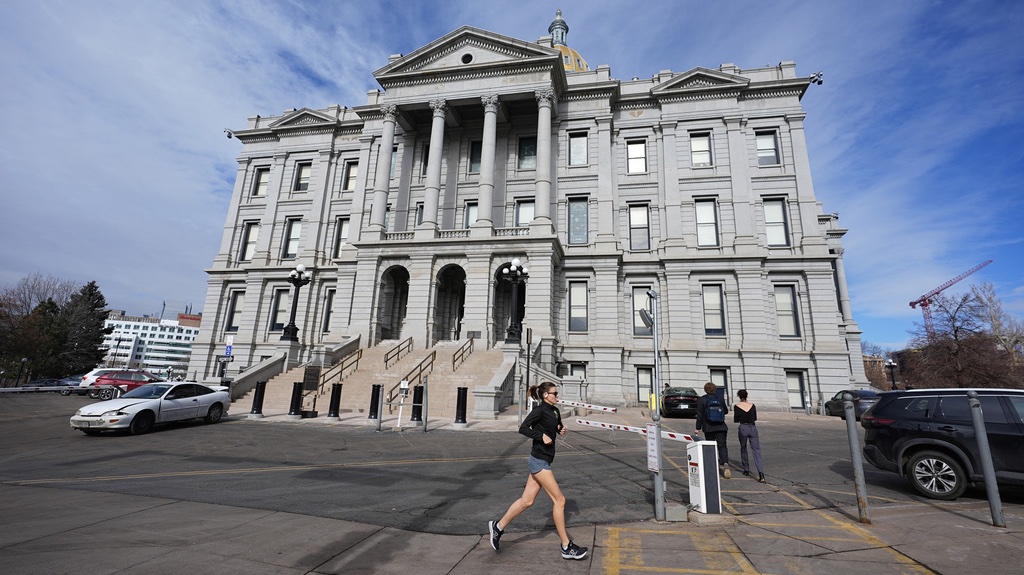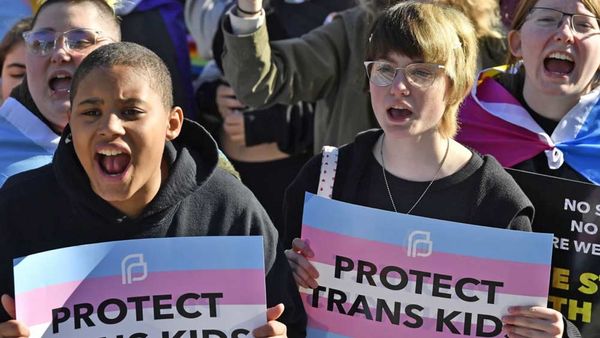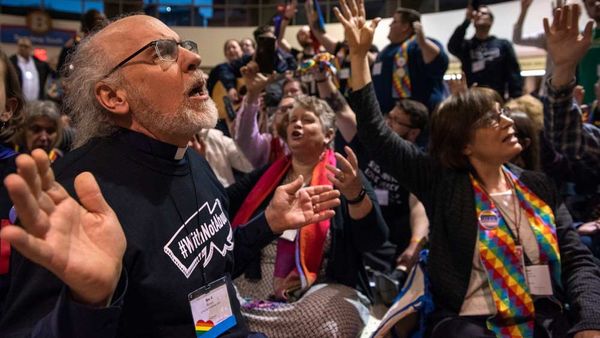
Mar 4
Colorado Lawmakers Clash over Bills to Protect Transgender People's Use of a Chosen Name
Jesse Bedayn READ TIME: 3 MIN.
Colorado's House was tense Friday morning as the Democratic majority pushed two bills through the chamber that would protect transgender people's chosen names: one allowing those convicted of a felony to change their name to conform with their gender identity and another requiring school staff use a student's chosen name.
These are the latest in a slew of bills across the country that have precipitated a national tug of war. Democrat-controlled legislatures including Hawaii and New Jersey have introduced bills similar to Colorado's, while Republican lawmakers in Idaho, Kansas, Wyoming and Louisiana are digging their heels with bills in the opposite direction.
The proposals stirred emotional debate, and at times tears, on the Colorado House floor Friday, along with a number of breaks to negotiate what could and couldn't be said in the well. The morning included wide-eyed surprise and huffs from both parties, prompting a back and forth of retorts and accusations over three hours of discussion.
"I am patently offended by the generalization and characterization of trans people with crimes against children," said Democratic Rep. Brianna Titone, a transgender woman, as she stared at Republicans in the chamber. "I won't stand for that."
Both bills passed the House roughly on party lines and are now headed to the Senate for further debate.
Republicans pushed back on the bill to allow those convicted of a felony to change their names to match their gender identity, arguing that it would allow those who committed future crimes to hide behind a new name.
"Thank you for helping them if they want to do criminal activities, thank you for helping them cloak their identity," said Republican Rep. Richard Holtorf.
Democrats pointed out that a name change would still have to be signed off on by a judge, and that the ability for someone convicted of a felony to change their name has existed for years in cases of marriage and adoption.
"If this was really about saying, 'People with felonies should not be able to change their names,' and not just one group of people, we would've heard that any woman who's committed a felony is trying to hide when she want's to get married," said Rep. Jennifer Bacon, Democrats' assistant House majority leader.
The second bill debated Friday would require school staff use students' chosen names and make it a form of discrimination not to. Democratic Rep. Jennifer Parenti described how her transgender teenager first started using their chosen name at school before later speaking with Parenti.
"I looked at them and I said, 'I'm sorry if I ever gave you the impression that this wouldn't be okay,'" said Parenti, eyes welling with tears. But "it makes sense ... that someone might want to try something this difficult out in a safe space before talking to their parents about it."
That's the thrust of the argument the bill's proponents have made, saying the measure particularly protects transgender youth whose family may not be as accepting. In turn, Republicans argued this bill would strip parents' rights and limit involvement in their child's life. The bill wouldn't require that the school keeps parents in the dark.
___
Bedayn is a corps member for the Associated Press/Report for America Statehouse News Initiative. Report for America is a nonprofit national service program that places journalists in local newsrooms to report on undercovered issues.







